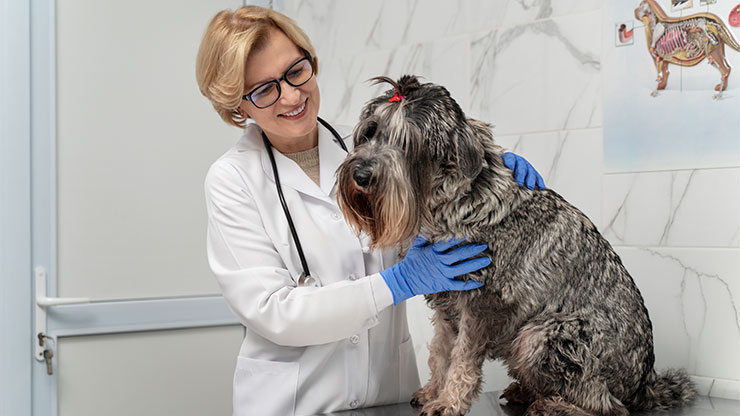
The Benefit of Soy as a Pet Food Ingredient
Typically, pet foods are created to be an all-inclusive source of nutrition for pets. Consequently, the food must have all the necessary components like protein, energy, vitamins, and minerals. You can meet your pet's nutritional needs with an easily digested, delicious, and secure diet.
Plant-based protein sources have been increasingly popular in pet food in recent years. Due to its excellent nutritional content and reliable availability, soybean meal is a popular plant protein source. The meal comes in different forms: dry extruded, semi-moist, and canned pet food. They are all suitable vehicles for soy protein concentrate.
In this article, it explains a few reasons why the protein and nutrients in soy are suitable for your pet.
1. A Significant source of vitamins and folic acid
B vitamin folate is a water-soluble nutrient found in various sources, including fortified foods, beverages, and supplemental pills. The B vitamin folate found in soy is one of the most essential components of U.S. Soy articles. Natural food folates go by the general name folate. The following are some of the benefits of folic acid for pets:
In addition to producing nucleic acids (such as DNA), forming blood cells in bone marrow, ensuring rapid cell growth during infancy, adolescence, and pregnancy, and regulating homocysteine levels in the blood, the body also uses amino acids to construct proteins.
2. Providing Pets with Vitamin C
Antioxidants, like vitamin C, are crucial for staying healthy. In addition to lowering inflammation and the effects of mental age on the body, it also helps to scavenge potentially damaging free radicals. Vitamin C is something that dogs can produce in their livers, although supplementation may be beneficial in certain situations.
3. Nutritional Supplements for Dogs with Vitamin D
Vitamin D, commonly referred to as the "sunshine vitamin," helps your dog's body maintain a healthy mineral balance, which is essential for bone development and maintenance. It's essential for your dog's growth and maintenance of strong muscles and bones.

4. Supplementing Dogs with Vitamin E
Antioxidants like vitamin E can protect your dog from free radicals. Without this vitamin's presence, there can be no cell activity or fat metabolism. Eye and muscular atrophy, as well as fertility issues, have been linked to nutritional deficiencies.
5. Supplementing Canine Diets with Vitamin K
Activating your dog's natural blood clotting mechanisms depends on vitamin K, a fat-soluble vitamin. Certain rat and mouse poisons impair a dog's capacity to utilize vitamin K, leading to internal bleeding and eventual death if untreated.
6. Protein and Fat in Soy
Energy can be stored in fat. The energy per gram in fat is roughly 2.25 times that in protein or carbohydrates. Triglycerides, consisting of three fatty acids connected to a glycerol backbone, comprise the vast majority of dietary fat. The carbon chain length, the presence or absence of double bonds, and the position of those bonds along the carbon chain are all factors in determining which fatty acids belong to certain categories. Saturated fats are those that contain no double bonds in their fatty acid chains, while unsaturated fats are those that do. Digesting fat is a more involved process than digesting protein or carbohydrates. However, healthy cats and dogs can only metabolize about 85% of the fat they eat.
Fat is essential because the body can't produce its fatty acids, and it's also used for fuel. Essential polyunsaturated fatty acids are vital to a dog's well-being, including skin and coat health, immune system functioning, and overall wellness.

7. High-Quality Protein and Easy Digestion
Many different kinds of plants and animals provide protein as well. Inadequate as a sole source of protein because they typically lack all the needed amino acids in the appropriate quantity, most protein components are often a poor choice. That's why most commercial dog feeds provide a variety of protein sources, so your pup may enjoy the optimal nutritional benefits. The amino acids absent in one food source are available in another, making soybean meal and maize a complementary protein source. If eaten with a complementary source of amino acids, most protein sources, including meat, can offer enough protein to meet a dog's needs.
8. Easy To Break Down Proteins in Soy
Proteins that are digestible by a dog's digestive system can be metabolized and used for fuel and other bodily processes. However, high protein content does not necessarily indicate ease of digestion. Although two dog diets may have the same amount of protein per serving on the label, their digestibility may differ based on the results of a controlled feeding study. Proteins can be damaged by exposure to high temperatures or by cooking them incorrectly. Therefore it's vital to monitor production quality closely.
9. The Potassium Content In Soy Is High
Your dog needs the electrolyte potassium to function properly. Potassium helps keep the heart, neurons, and muscle cells' electrical currents flowing smoothly. Signs of a lack of this essential mineral in your dog's diet include unusual lethargy or lack of appetite. A loss of muscle mass and weight are other possible side effects.

Final Thought
In conclusion, before introducing soy into your pet's diet, it is recommended that you speak with a veterinarian or pet nutritionist. Your doctor or healthcare provider is in the greatest position to advise you on whether the advantages are worth the dangers. Tofu is reasonably safe for pets to consume in small amounts, so don't panic if yours sneaks some from the counter or cupboard. If your dog has eaten a considerable amount of tofu or other soy product, check for signs of distress or allergic response, and contact your vet if you suspect your dog will require additional treatment. If you buy soy products for your pet that aren't specifically made for them, you should read the labels carefully to be sure they don't contain any spices or other substances that could harm your pet.
Sources










